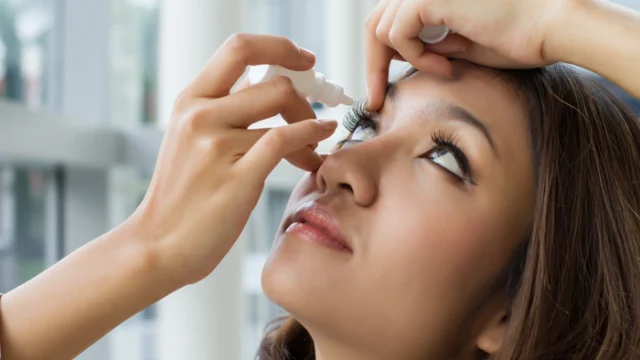In the era of viral beauty trends, the allure of changing eye color with a simple drop may seem irresistible. However, experts are raising alarms about the potential dangers associated with these popular, unregulated eye drops.
Marketed as quick-fix solutions to achieve a new eye color, these products are gaining traction online, particularly on platforms like TikTok. Yet, medical professionals are sounding the warning bell, stressing that these drops could cause significant and irreversible damage.
No Proof of Efficacy
Dr. JoAnn A. Giaconi, a clinical spokesperson for the American Academy of Ophthalmology (AAO), highlights a critical concern: “Consumers need to know that these eye drops are not FDA-approved,” she said in a recent press release. “There’s no evidence they actually work or that they are safe.”
The drops, often advertised with striking before-and-after photos, lack clear information about their safety and effectiveness. Dr. Giaconi points out that while these products promise dramatic results, they come with a concerning absence of scientific validation.
Potential Health Hazards
The eye color-changing drops typically contain prostaglandin analogs, hormone-like substances that may darken the iris. Dr. Thierry Hufnagel, a LASIK and cataract surgeon at Stahl Eyecare Experts, warns of several risks associated with these products, including eye irritation, dryness, and changes in eyelash appearance. More serious long-term effects could involve iris hyperpigmentation, vision changes, and even irreversible eye damage. There is also a risk of glaucoma if the drops interact poorly with other medications.
In February, the FDA issued a warning letter to LightEyez Limited, a London-based manufacturer, citing that their MSM Eye Repair Drops were contaminated with “filthy, putrid, or decomposed substances.”
Safer Alternatives
For those interested in altering their eye color, there are safer FDA-approved options. Cosmetic contact lenses, when prescribed and fitted by a professional, can temporarily change eye color without the associated risks of unregulated drops. Iris implant surgery is another option, but it carries significant risks, including potential vision loss, and is generally not recommended for individuals with specific eye conditions.
Dr. Hufnagel advises anyone considering a permanent change in eye color to consult with an ophthalmologist. “A thorough discussion with a qualified eye care professional is crucial due to the potential for serious complications,” he said.
As the trend of eye color-altering drops continues to spread, the medical community urges consumers to approach these products with caution and prioritize safety over fleeting cosmetic changes.







































